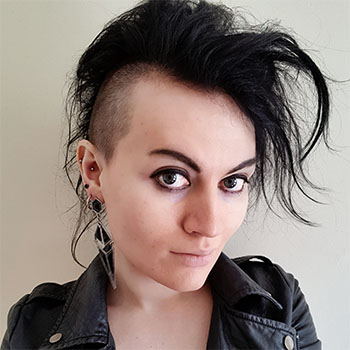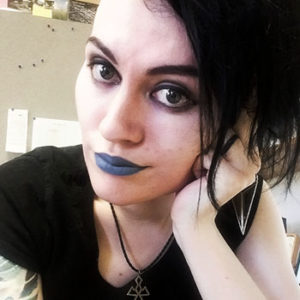“One does not always stay intact.”
—Judith Butler, Undoing Gender
Thoughts
I’m not quite sure who I am. That’s why I write fiction. I can fade into a story and express myself through multiple voices. It’s also why I’m an academic. There’s some comfort working in a web of scholarship, made intricate with theory, forever weaving and reinforcing.
Blogging like this, however, is hard. I need to find a voice without relying on the imaginative sorcery of fiction or the theoretical cunning of academia. I need to figure out how to speak as me.
Self is my least fluent language.
I want to talk to you about authenticity. But I can’t give in to my two natural instincts – either to critique it (crawling across my scholarly web, fangs ready to plunge into themes of neoliberalism, identity, power), or instead, to express these things (vanishing into a haze of dreams, emerging as a sultry, androgynous entity with wondrous eyes.) No, somehow, I need to explain.
So let me throw out a few words, scattered sparks in the night.
I’m a genderqueer lesbian, and I identify as trans, but I won’t explain how or why. Perhaps you want more detail than this; perhaps you are even tempted to scroll to my bio at the end of this blog post, to read about my life, to study my face, to disassemble me for an answer. What pronouns? How is she trans? What does she mean by genderqueer?
Please do understand this: I’m a novelist, and I feel the law that binds me. Show, don’t tell.
Fears
I write evasively, so that my words might hold the smoky substance of my thinking.
My work on Goodreads is tagged #ownvoices. It wasn’t me who did this. (I often wonder who did.) And this tag troubles me, because in my mind, I’m not authentic. My voice is not my own.
It’s not that I’m dishonest. There are many things I do honestly – love my girlfriend, miss my family, fear what you’ll think of me. But live authentically? Have an “authentic self?” That sounds like sorcery to me, the domain of a witch who gazes through flames into a magic mirror. To me, lacking the second sight, authenticity is an impenetrable mist.
I can hazard a guess as to why. Like many queer people, like many trans people, I’ve been splintered by trauma. And how can I claim authenticity when so many of my essential pieces are missing?
Yet other people see me as authentic, and they value this quality in me. People have told me that they’re grateful that I write; they ask me to sensitivity read, to educate, to explain. They say that I teach them so much. They suggest I might construct guides, post blogs, write articles. They want me to explain why a thing might be “problematic.”
I flinch, smile, evade.
But I can’t escape, not in the end, because my industry values authenticity too. It promotes authentic writers. It hires authentic sensitivity readers. It champions authentic stories. Authenticity is currency. We cry famine and ransack shattered hearts in search of more.
It’s frightening to think that people seek this commodity in a broken thing like me.
Fictions
Recently, I participated in an interview on a local women’s radio station. One of the pre-prepared questions read as follows: How did you attempt to create queer perspectives in your novel?
Attempt. As though a queer perspective is a feat you can strive toward and fail. Attempt, as though I have could ever have failed to be queer.
I have failed, many times, to be otherwise.
As a radical transfeminist, I’m scared of callout culture, with its savage need for purity, just as I’m scared of assimilation, that temptation to abandon resistance. And this makes it easy for me to fear authenticity, the same way that I fear common sense, the political principle that disguises itself as simple virtue.
Some people believe the world stops at the horizon.
But speaking now as a woman left many-selved through trauma, I’m mostly scared you’ll mistake my questioning for an answer. Yes, my beautiful, kind, bewildered allies, I have personally survived through things you want urgently to understand—but no, I cannot tell you what it is like to be trans, nor teach you what it means to be queer, nor in any way be your compass. My fiction does not contain authentic representations of trans and queer people.
It contains exactly what you should expect: fictions.
And yet. Ursula LeGuin reminds us that “the novelist says in words what cannot be said in words.” My own authenticity forever eludes me, but in my wandering search, perhaps I have shown myself to you.
So read me nonetheless. There must be a truth in here. And if you find her, let me know.
Eden S. French is an award-winning novelist, a graduate researcher at the University of Tasmania, and nothing but trouble. She lives in Hobart, Tasmania with her enchanting artist girlfriend, at least one cat, and a sense of foreboding. Eden has just published Reintegration with Queer Pack. You can find Eden on Twitter.


